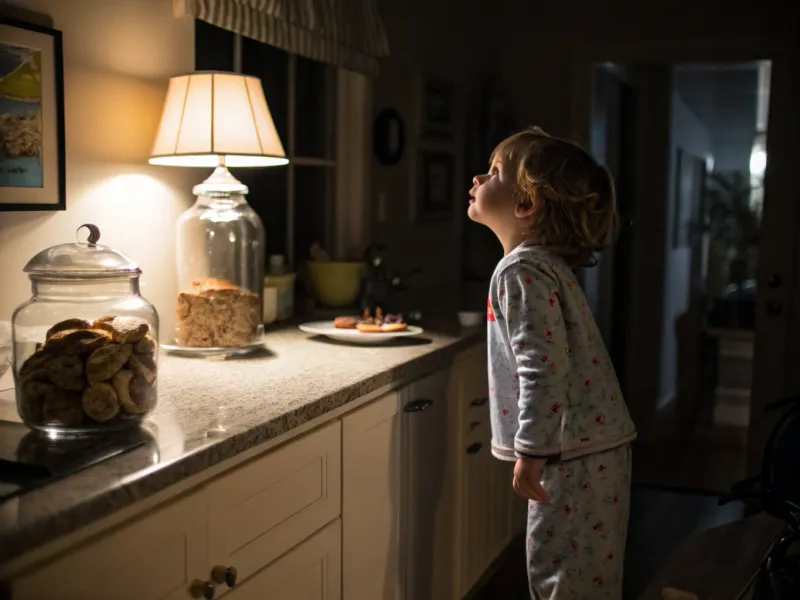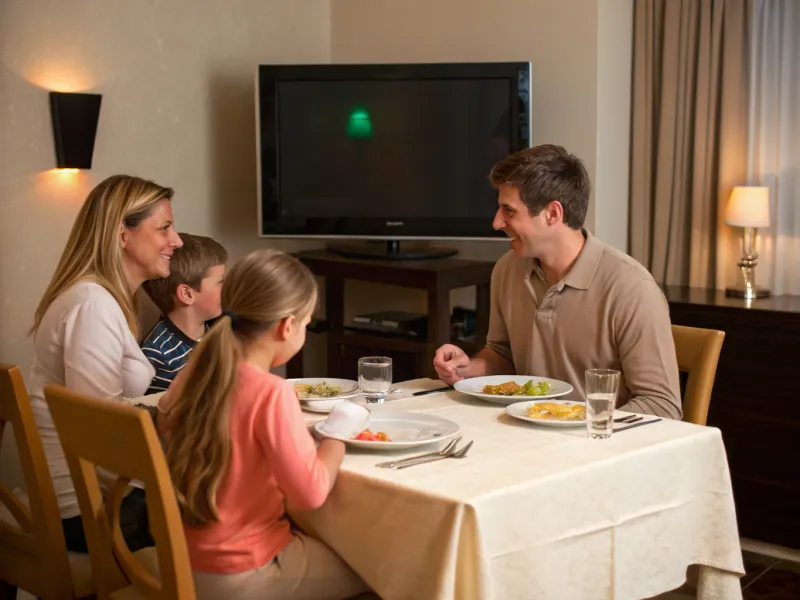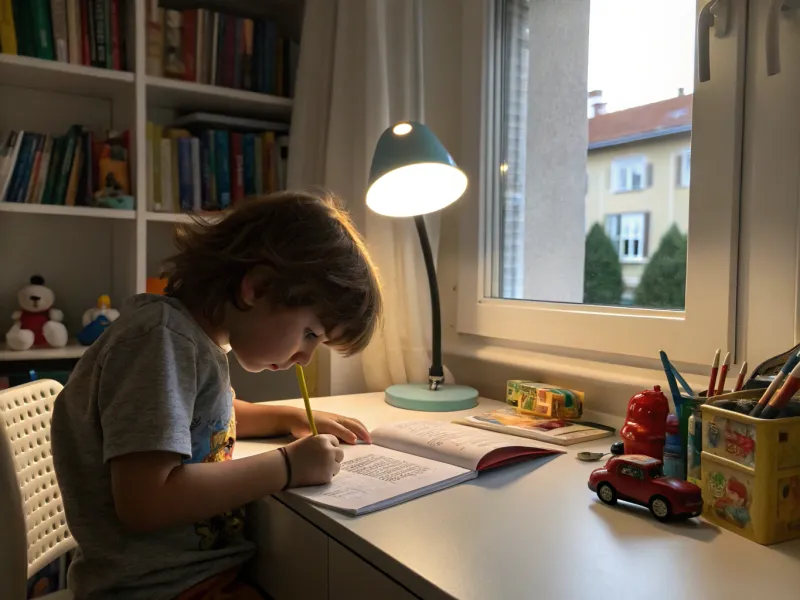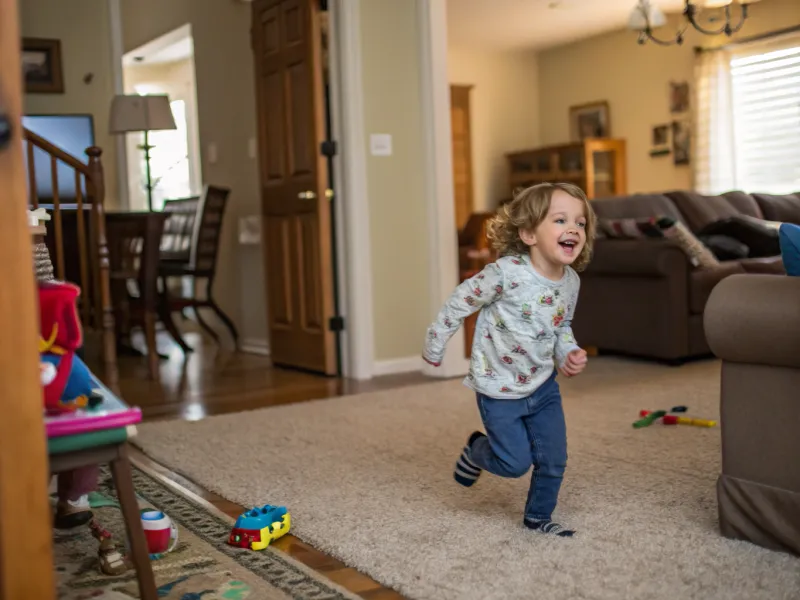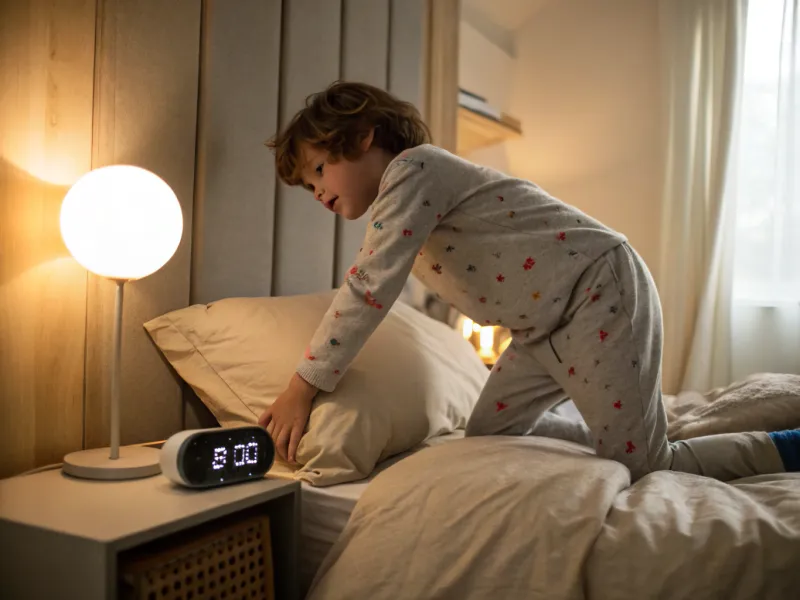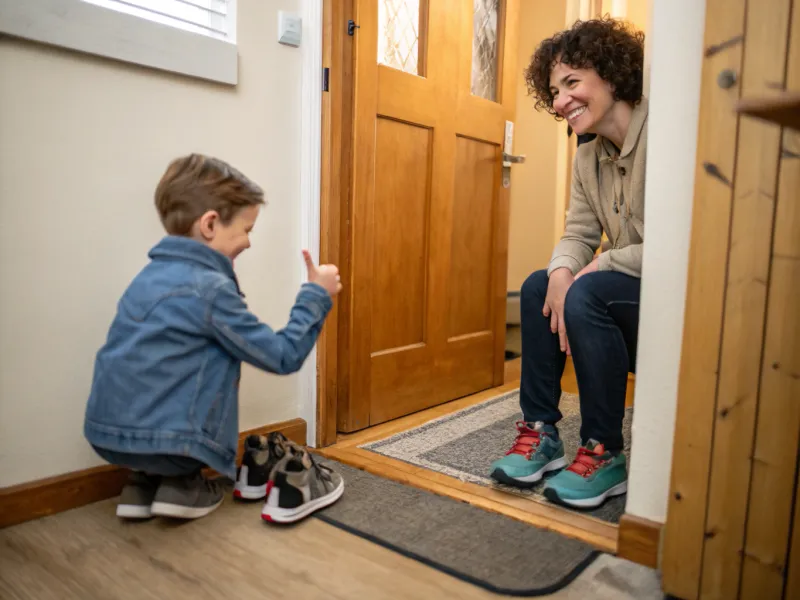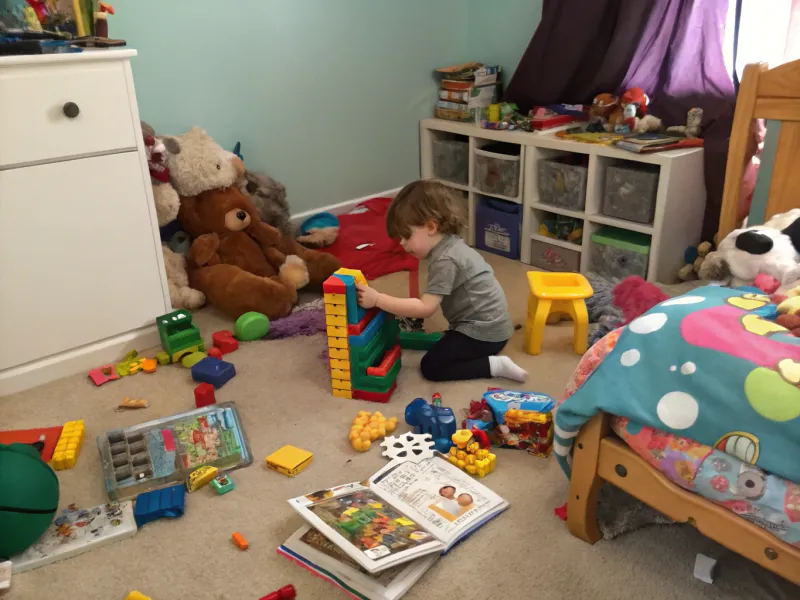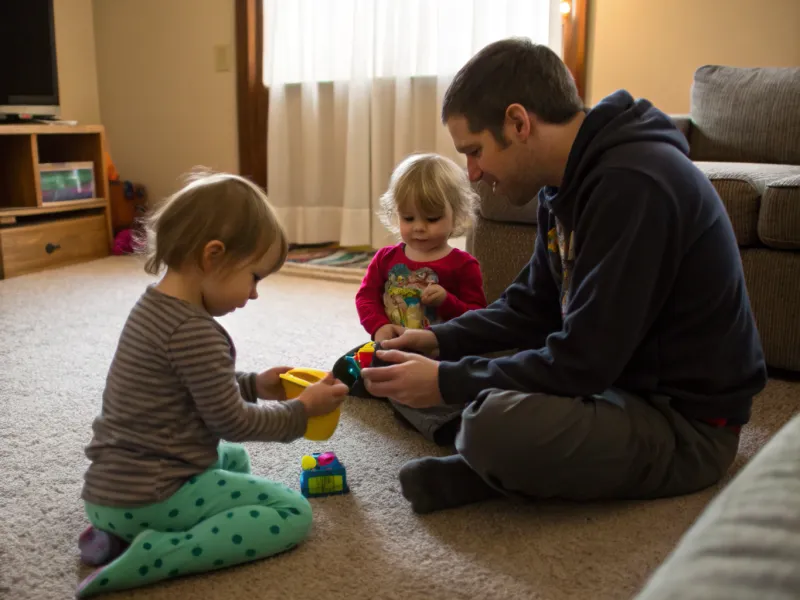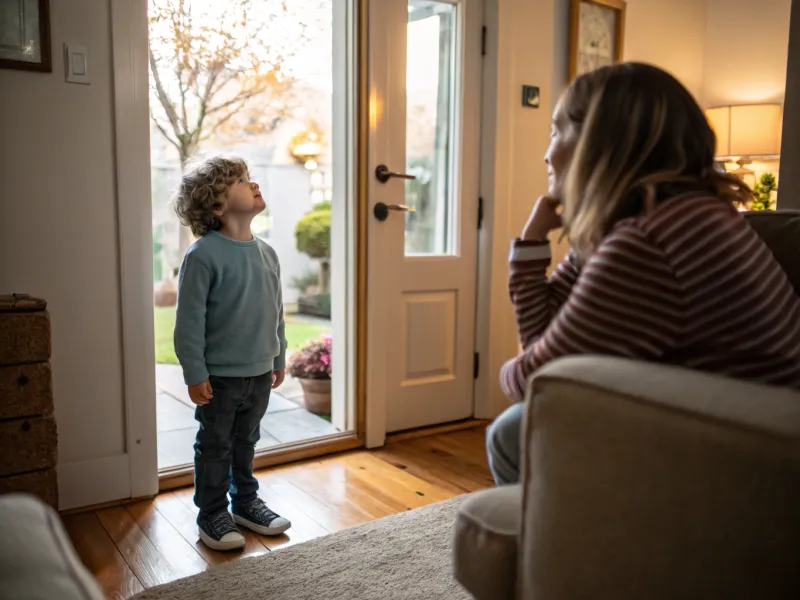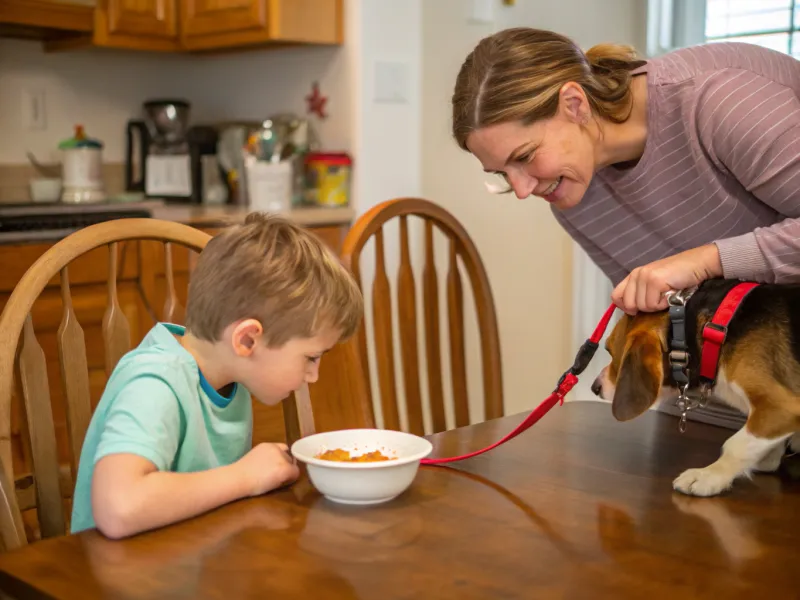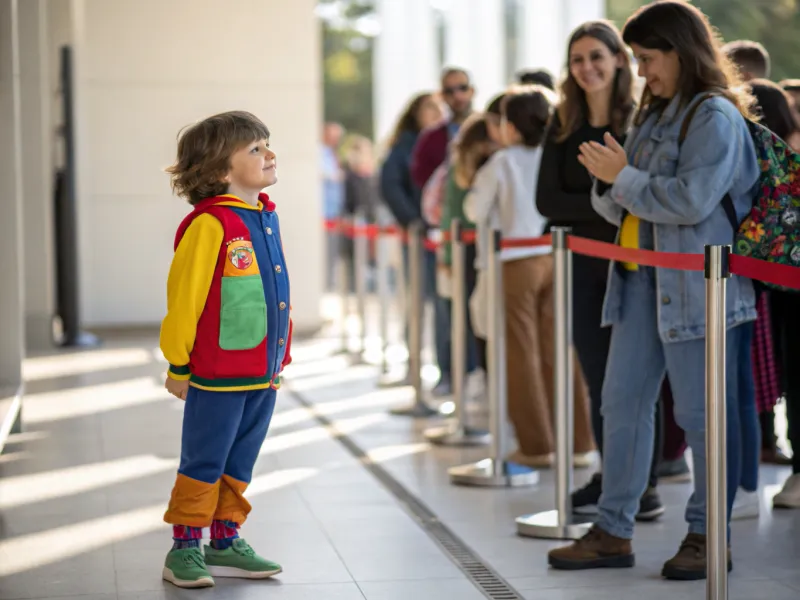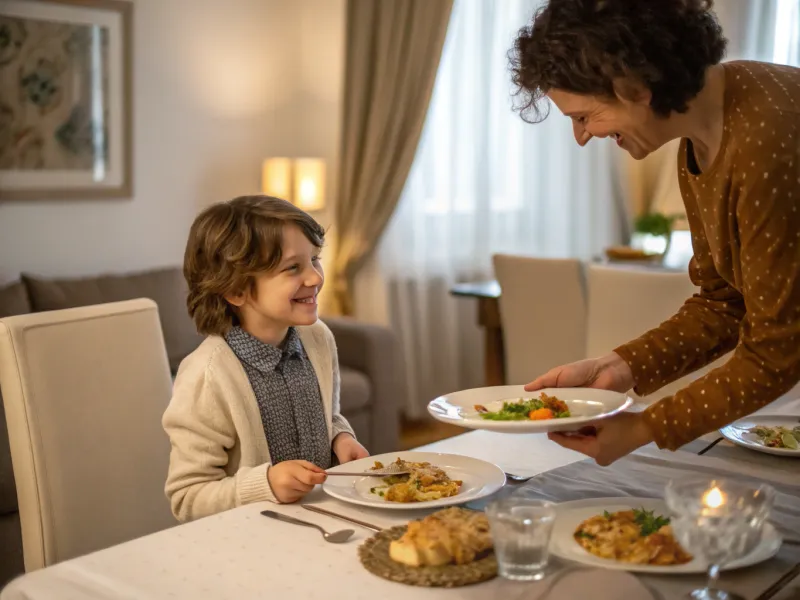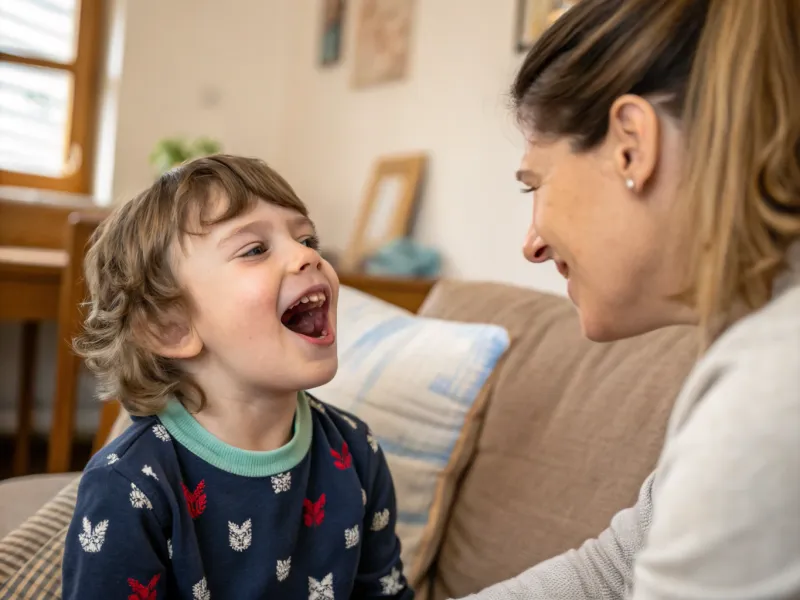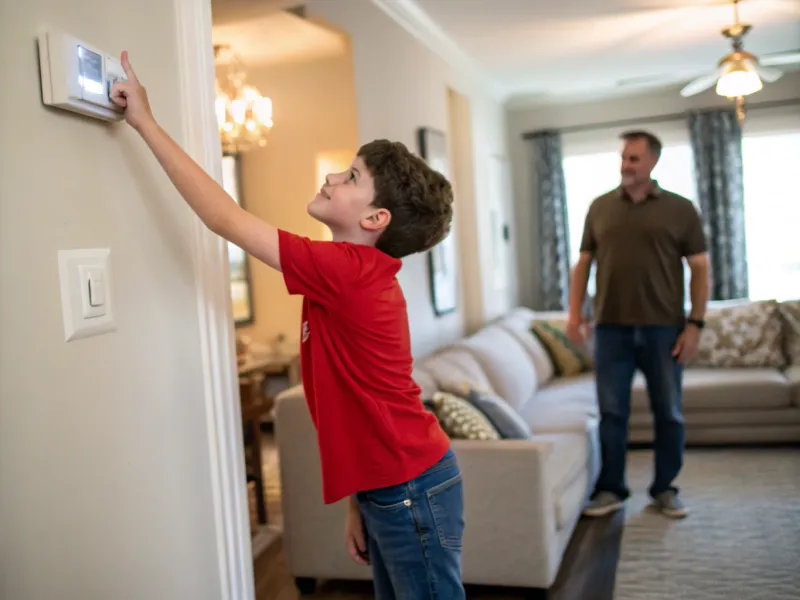Growing up, many of us encountered peculiar rules from our parents that seemed baffling at the time.
From the “no snacks before bed” rule to the insistence on wearing matching socks, these seemingly arbitrary regulations often left us scratching our heads. However, as adults, we begin to understand the method behind the madness.
These rules, once weird and inexplicable, now reveal their wisdom and practicality. Brace yourself for a nostalgic trip down memory lane, filled with humor, insights, and perhaps a newfound appreciation for those parental rules!
1. No Snacks Before Bed
As a kid, being told “no snacks before bed” felt like the ultimate betrayal of trust. Those delicious cookies on the counter seemed to call our name, only to be silenced by parental authority. Little did we know, this rule was a strategic move.
The main reason? To avoid sugar rushes that could lead to sleepless nights. Imagine bouncing off the walls at bedtime! Sleep is crucial for young minds, and a full stomach can be a recipe for nightmares, both literally and figuratively.
Another hidden gem of wisdom in this rule is dental health. Eating before bed without brushing can lead to cavities, something our parents knew all too well. This rule was their way of ensuring our pearly whites stay bright and healthy. Fast forward to adulthood, and many of us find ourselves enforcing the same rule, albeit reluctantly.
2. Matching Socks Only
The rule of “matching socks only” felt needlessly strict. Who cared if one sock was blue and the other had polka dots? Apparently, our parents did.
But looking back, it wasn’t just about aesthetics—it was about attention to detail, organization, and presenting yourself well. A small habit like matching socks instilled an early sense of order and preparedness, which (whether we admit it or not) carries into adulthood.
And let’s be honest—how many of us still do a double-check before stepping out the door, just to make sure our socks match?
3. No TV During Meals
Few things felt as unfair as being forced to turn off the TV right when our favorite show was on. Why did parents insist that mealtime was some sacred, screen-free event?
As it turns out, they had a point. This rule encouraged family bonding, real conversations, and mindful eating. It ensured that meals weren’t just about refueling but about connecting.
Fast forward to today, and we find ourselves making the same rule in our own homes—because, deep down, we know family dinners should be about more than just staring at a screen.
4. Finish Your Homework First
Hearing “No playtime until your homework is done” felt like the ultimate fun-blocker. But our parents knew exactly what they were doing.
This rule wasn’t just about getting assignments done—it was about learning discipline, prioritization, and time management. By tackling responsibilities first, we were rewarded with stress-free fun later.
Now, as adults, we see the wisdom in handling responsibilities before relaxation. Whether it’s work, bills, or errands, the “homework first” mindset sticks with us, proving that our parents were setting us up for success all along.
5. No Running in the House
To a child, the house is an obstacle course waiting to be conquered. But to parents, it’s a disaster zone just waiting for something (or someone) to break.
This rule wasn’t about being overly strict—it was about keeping both us and the fragile décor intact. No one wants a trip to the emergency room over an impromptu indoor race.
Now, when we find ourselves telling nostro kids the same thing, we realize: we weren’t being deprived of fun—we were just being saved from avoidable accidents.
6. Eat Your Vegetables First
Being told to eat the least appetizing part of the meal first felt unfair. Why couldn’t we start with the fries and end with the broccoli?
Because our parents knew what they were doing. Prioritizing vegetables ensured we got the necessary nutrients before filling up on less nutritious foods. It also subtly taught us to tackle the less exciting parts of any task first—a lesson that applies far beyond the dinner table.
And let’s be honest, now that we’re older, we ottenere it. In fact, some of us voluntarily pile our plates with greens… who would’ve thought?
7. Bedtime is Non-Negotiable
As kids, bedtime felt like an unnecessary limitation. Why did we avere to sleep when there was still so much fun to be had?
Now, as adults desperately clinging to every hour of rest we can get, we finally understand. Parents weren’t just trying to end our fun; they were making sure we got the sleep we needed to function, grow, and stay healthy.
Ironically, now that we’re in charge of our own bedtimes, we long for the structure we once resisted.
8. No Shoes in the House
Taking off shoes at the door seemed like a pointless hassle, but our parents had solid reasons.
Beyond just keeping the house clean, this rule helped prevent dirt, germs, and outdoor mess from spreading indoors. It was a small habit with big benefits, contributing to a healthier, more comfortable home.
Nowadays, we cringe when someone walks in with their shoes on, proving that this lesson stuck with us more than we realized.
9. Clean Your Room Before Play
“Clean your room before you do anything fun.” Ugh. Nothing ruined playtime faster than being told to tidy up first.
But looking back, this rule taught responsibility, organization, and the value of maintaining a clutter-free space. It reinforced the idea that taking care of personal surroundings was just as important as enjoying them.
And let’s face it—when our own homes get messy, we instinctively feel the need to straighten up before we can truly relax.
10. Say Please and Thank You
The insistence on good manners seemed relentless at times. Why did it matter tanto to say “please” and “thank you”?
Because parents knew that politeness and gratitude go a long way. They were instilling social skills that would help us navigate relationships, work environments, and everyday interactions.
Today, we see how these small courtesies shape the way people respond to us—and we catch ourselves drilling the same lessons into the next generation.
11. No Dessert Until After Dinner
Few things were as heartbreaking as hearing, “You have to finish your dinner first.” The sweet, glorious dessert was right there, yet completely off-limits until every last vegetable was eaten.
At the time, it felt cruel. Now, we get it. Parents were teaching us balance—nutrients first, treats second. It wasn’t just about dinner; it was a lesson in moderation, patience, and delayed gratification.
And now? We find ourselves enforcing the very same rule with our own kids, knowing full well that if dessert came first, dinner would never happen.
12. Share Your Toys
As kids, the rule of sharing felt like a personal attack. Why should I hand over my favorite toy just because someone else wants it?
But parents weren’t just trying to be fair; they were teaching us about generosity, cooperation, and the joy of playing insieme. Learning to share helped us build friendships, resolve conflicts, and understand the importance of kindness.
Today, the lesson extends far beyond toys. Whether it’s time, resources, or support, sharing remains a fundamental part of building strong relationships. And yes, we now find ourselves reminding nostro kids, “It’s more fun when you share.”
13. No Talking Back
Nothing triggered a parent faster than a smart-mouthed response. “But why?” o “That’s not fair!” often led to the classic, “Because I said so.”
At the time, it felt like we were being silenced. But in reality, this rule was about respect—learning how to communicate disagreements in a constructive way. Parents weren’t trying to suppress our voices; they were teaching us to express ourselves without being rude.
Now, as adults, we see how this lesson applies in work meetings, relationships, and daily interactions. Respectful communication goes a long way, and we probably owe our parents a Grazie for drilling that lesson into us.
14. No Electronics at the Table
Few things were more painful than being forced to put down the Game Boy or pause a TV show just because it was time to eat. Couldn’t we multi-task?
But parents had a bigger goal in mind—family connection. Mealtime was about conversation, bonding, and learning to be present. They knew that a screen-free table meant better relationships and a stronger sense of togetherness.
Fast forward to today, and we long for those device-free moments. Now, we’re the ones saying, “Put the phone away. Let’s just talk.”
15. Dress Appropriately for the Weather
As kids, weather-appropriate clothing often clashed with our sense of fashion. Who cared if it was snowing? That t-shirt and shorts combo was non-negotiable.
Parents, however, weren’t impressed by our questionable outfit choices. They knew that proper clothing wasn’t just about comfort—it was about avoiding frostbite, overheating, or getting sick.
Now, as adults, we finally understand. When we see kids running outside without coats in the dead of winter, we shake our heads and hear our parents’ voices in the back of our minds: “You’re going to catch a cold!”
16. Ask Before Going Out
The dreaded, “Did you ask permission?” always felt unnecessary. Why did we need to chiedere to go outside when our friends were already waiting?
Turns out, this rule was about responsibility, communication, and safety. Parents needed to know where we were, who we were with, and what we were doing. It wasn’t about control—it was about keeping us safe and accountable.
Now, we check in with loved ones before heading out and appreciate the peace of mind that comes with knowing someone cares about our whereabouts.
17. No Jumping on the Bed
Few childhood joys compared to launching ourselves into the air, turning the bed into our own personal trampoline. The “no jumping on the bed” rule felt like a total fun-killer.
But parents had their reasons—broken bed frames, injuries, and the occasional sibling collision. It wasn’t about ruining our fun; it was about preventing the inevitable crash that always followed.
Now, when we catch nostro kids mid-air, we instinctively yell the same words: “Get down before you hurt yourself!” And just like that, the cycle continues.
18. Don’t Interrupt Adults
Waiting patiently to speak felt like an impossible task as a child. When we had something important to say (which, let’s be honest, was usually not that important), we needed to say it immediately.
Parents, however, enforced this rule to teach us patience, respect, and self-control. It helped us understand the flow of conversations and the importance of listening.
Now, in meetings or social gatherings, we recognize how valuable this skill is. We’ve learned that thoughtful communication isn’t just about talking—it’s about knowing quando to speak.
19. Use Indoor Voices
For kids, excitement = volume. Whether playing, arguing or simply existing, everything was loud. And that’s why the “indoor voices” rule became a staple in many households.
At the time, it felt unnecessary—why not just talk however we wanted? But parents were teaching us consideration for others, an essential life skill.
Now, whether in a crowded restaurant, a workplace, or a library, we instinctively lower our voices. And when kids start screaming indoors? Yep, we’re the ones saying, “Use your indoor voice, please.”
20. No Playing with Food
Food wasn’t just nourishment—it was fun. Peas could be catapulted, mashed potatoes could be sculpted, and spaghetti? Well, it made an excellent wig.
Parents, however, saw food differently. They wanted us to respect our meals and recognize that food isn’t something to waste.
Now, as adults, we understand. We value meals, appreciate the effort that goes into cooking, and realize that food should be enjoyed, not treated like a toy. And when nostro kids start sculpting mashed potato towers? You guessed it—we tell them to knock it off.
21. Turn Off Lights When Leaving a Room
This rule felt like an unnecessary chore. Why did it matter if the light was left on for just a few more minutes?
What we didn’t realize was that our parents were subtly instilling energy-saving habits. Turning off the lights wasn’t just about cutting the electric bill—it was about reducing waste and being mindful of resources.
Fast forward to adulthood, and now we’re the ones going around the house flipping off lights and muttering, “Electricity isn’t free!” Just another way our parents secretly turned us into responsible grown-ups.
22. No Touching Fragile Items
Few things were as tempting as the delicate, untouchable treasures displayed on high shelves. Whether it was a glass figurine, a decorative plate, or a fancy vase, being told “Don’t touch that!” only made us more curious.
But parents weren’t just being overprotective—they were teaching us respect for other people’s belongings. Knowing when non to touch something was an early lesson in boundaries, self-control, and the consequences of reckless curiosity.
Now, as adults, we understand the horror of watching someone casually handle something noi consider precious.
23. No Pets at the Table
For pet-loving kids, this rule was devastating. How could we eat without sharing a bite with our furry best friend?
But parents were onto something. Allowing pets near the table meant dealing with hygiene issues, begging, and the occasional stolen meal. It was about maintaining order and keeping food for humans.
Today, we get it. Now, we enforce the same rule—not because we don’t love our pets, but because we know the chaos that ensues when they get a taste of table scraps. (And let’s be honest, no one likes dog hair in their spaghetti.)
24. Wait Your Turn
Patience is hard when you’re a kid. Whether it was waiting for a turn on the swing or standing in line for ice cream, it felt unfair to have to wait when excitement was at an all-time high.
But parents knew that waiting taught us more than just patience—it instilled fairness, respect, and an understanding that the world doesn’t revolve around noi.
Now, we see the importance of this rule everywhere—from traffic lights to workplace meetings. Turns out, knowing how to wait your turn is a skill that saves us from unnecessary conflict and frustration.
25. Eat at the Table
Nothing seemed more appealing than eating dinner in front of the TV. So why was it such a grande affare to sit at the table?
Because mealtime wasn’t just about food—it was about connection. Parents wanted us to learn that eating wasn’t a mindless activity but a chance to engage with family and practice basic manners.
Now, as adults, we recognize the value of undistracted meals. And even though life gets busy, we appreciate the rare moments when everyone sits down together, just like our parents intended.
26. Use Coasters for Drinks
As kids, the idea of using coasters seemed completely unnecessary. What’s the worst that could happen?
Then we grew up, bought our own furniture, and learned the hard way: water rings are the enemy. Our parents weren’t just being picky—they were trying to preserve household items.
Now, if we see someone put a glass directly on the coffee table, we have to fight the urge to shove a coaster under it.
27. Don’t Talk with Mouth Full
Nothing ruined a good story like being told, “Don’t talk with your mouth full!” It felt like an unnecessary interruption when we had to share something in questo momento.
But parents were simply teaching us table manners, ensuring that mealtime conversations remained pleasant (and free from flying food particles).
These days, we understand the importance of speaking dopo swallowing. Because let’s be honest—watching someone talk mid-bite is not a sight anyone enjoys.
28. Always Wear a Hat Outside
Wearing a hat felt like an unnecessary burden. Why did our parents insist on stuffing one onto our heads every time we left the house?
Now, as adults who understand UV rays, sunburn, and heatstroke, we finally see the logic. Protecting our heads from the sun isn’t just practical—it’s essential.
And let’s be honest: now, if we leave the house without a hat on a scorching day, we can sentire our parents’ voices in our heads saying, “I told you so.”
29. No Touching the Thermostat
The household thermostat was often off-limits, akin to a mysterious treasure chest. Adjusting it, we were told, was the domain of parents alone. It seemed like a power play.
Understanding energy costs and efficiency reveals the logic. Maintaining a stable temperature conserves energy and saves money. This rule taught us about resource management and the importance of shared family responsibilities.
30. No Leaving the Table Without Permission
A common childhood rule was staying seated until excused. This practice teaches patience and respect for mealtime rituals. It encourages active participation in family conversations and ensures everyone has enough time to finish their meals.
As children, it seemed controlling, but it promotes social skills and table manners. It also prevents disruptions during meals, allowing for a peaceful dining experience.
Today we recognize the importance of this rule in fostering family bonds and reinforcing polite behavior.


